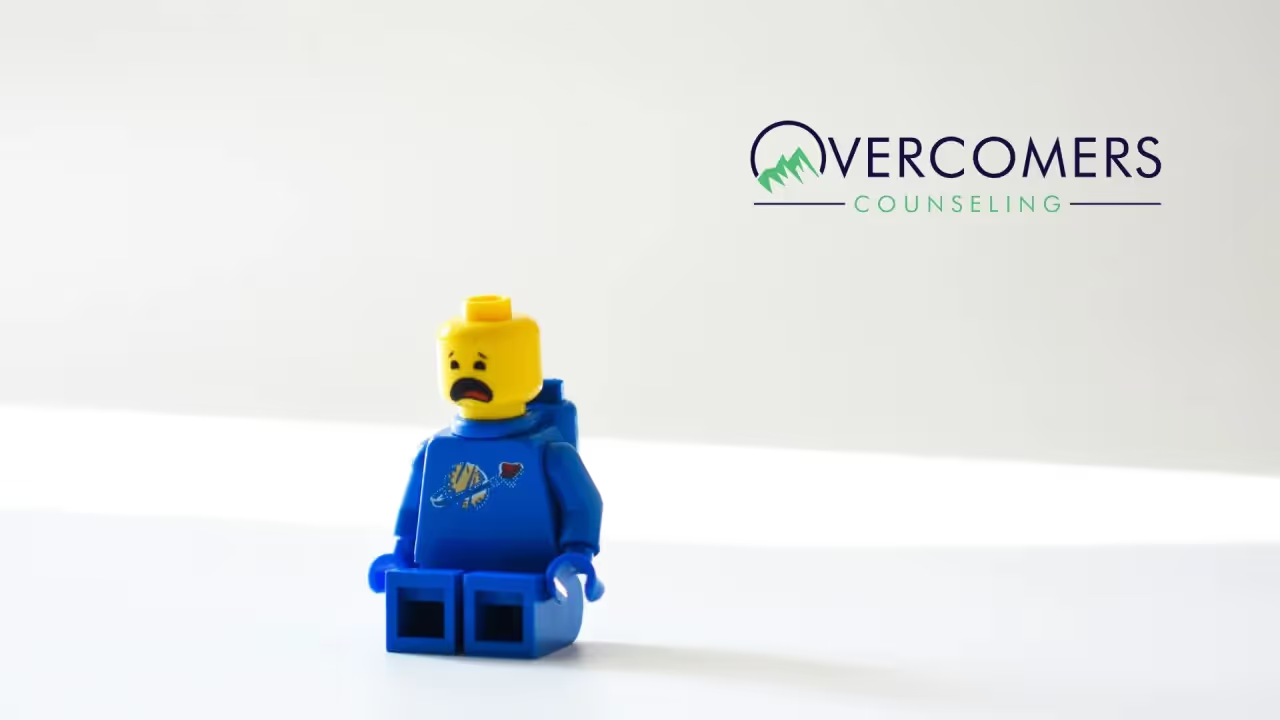We've all experienced it at some point - that gnawing feeling of not being good enough. Maybe it was when you didn't get the promotion you were hoping for,...

We've all experienced it at some point - that gnawing feeling of not being good enough. Maybe it was when you didn't get the promotion you were hoping for, or when a project you poured your heart into didn't turn out as planned. These feelings of inadequacy can be incredibly debilitating, often leading us to question our self-worth and capabilities. However, they are also universal, an inherent part of the human experience. It's about recognizing these feelings when they arise, learning to challenge them, and ultimately, transforming them into fuel for personal development and self-improvement. This journey is not easy, but it is worthwhile, and it begins with understanding that you are not alone in your struggle.
Inadequacy, in its simplest form, is the feeling of not being good enough. It's a deep-seated belief that we are less than or inferior to others in some way, whether intellectually, physically, socially, or otherwise. This belief can manifest in various aspects of our lives, from our careers and relationships to our personal goals and self-image. But why do we often feel inadequate? The root causes are multifaceted and can be traced back to societal pressures, personal experiences, and even our brain chemistry.
We live in a world that constantly measures success through comparison, whether it's our achievements, physical appearance, or social status. This constant comparison can make us feel as if we're always falling short. Personal experiences, such as childhood traumas or past failures, can also ingrain feelings of inadequacy. Furthermore, our brain's negativity bias – its tendency to focus more on negative events than positive ones – can amplify these feelings. The psychological and emotional impacts of feeling inadequate are profound. It can lead to low self-esteem, anxiety, depression, and in severe cases, it can even trigger mental health disorders.
Social Comparisons:
- The constant exposure to others' success and happiness on social media platforms can make us feel inferior or unsuccessful.
- The 'highlight reel' nature of social media feeds often presents an unrealistic view of people's lives, leading to feelings of inadequacy.
Perfectionism:
- Attempting to meet unrealistically high standards in various aspects of life (work, relationships, personal goals) can result in feeling inadequate when those standards are not met.
- The pressure to be perfect can be self-imposed or stem from external influences such as family expectations or societal norms.
Past Failures or Traumas:
- Previous experiences of failure or rejection can breed a sense of inadequacy, especially if these experiences have been internalized and perceived as personal shortcomings.
- Traumatic events from the past, such as bullying, abuse, or neglect, can instill deep-seated feelings of worthlessness or inadequacy.
Feelings of inadequacy can cast a large shadow over our mental health. These persistent self-deprecating thoughts can lead to chronic stress, as we constantly feel the need to prove ourselves or meet unattainable standards. This stress can then manifest as anxiety disorders, where we fear judgment or failure. In more severe cases, feelings of inadequacy may also contribute to depression, as individuals may start to believe they are fundamentally flawed or unworthy. Moreover, these feelings can hinder our ability to form and maintain healthy relationships, leading to feelings of isolation and further exacerbating mental health issues. Understanding this impact underscores the importance of addressing feelings of inadequacy promptly and effectively.

Overcoming feelings of inadequacy is possible with a combination of self-awareness, patience, and practice. Here are some effective strategies:
Despite our best efforts, there may be times when feelings of inadequacy become overwhelming and interfere with our daily lives. This is when it's crucial to seek professional help. Therapies such as Cognitive Behavioural Therapy (CBT) and Dialectical Behaviour Therapy (DBT) can be highly effective in reshaping negative thought patterns and managing emotional distress associated with feelings of inadequacy. Moreover, support groups can serve as a safe space to share experiences and gain insights from others who are going through similar struggles.
Feelings of inadequacy are common and can significantly impact our mental health if not addressed. However, with strategies such as cultivating self-compassion, setting realistic goals, practicing mindfulness, and meditation, and using positive affirmations, we can start to reshape these negative perceptions. Overcoming feelings of inadequacy is a journey, not a destination. It requires patience, self-love, and consistent effort. As you embark on this journey, consider starting with one or two of the strategies mentioned in this article. Take small steps, celebrate every win, and most importantly, be patient with yourself. You are more than enough just as you are, and with time, you will start to believe it too.
Prioritize your tasks by importance and deadline, break large projects into smaller steps, and create a realistic daily schedule that includes time for self-care and relaxation. Don't be afraid to delegate tasks or ask for help when needed.
Healthy techniques can help you feel more in control of your emotions and present situation, which can help because stress and anxiety are often caused by a person feeling like they have no control over their feelings, situation, or outcomes.
Accepting the things you cannot change is crucial, so you shouldn't try to control the uncontrollable; instead, look for the upside. Share your feelings with a therapist, friend, or family member, and learn to forgive if relevant.
A typical mental health life coaching session typically starts with setting an agenda based on the client's goals. The coach and client then discuss various topics that are related to the client's goals, such as identifying challenges, building self-awareness, developing new skills, and identifying strategies for overcoming obstacles. During the session, the coach provides guidance and feedback to help the client reach their desired outcome.
Unlike therapy, If you're feeling stuck or at a crossroads in your life, an experienced coach can help you gain clarity and make progress toward your goals.which focuses on treating mental health issues, life coaching focuses on helping clients reach specific goals through self-development and growth.
The techniques activate the parasympathetic nervous system, which increases tolerance to distress, decreases physical discomfort, slows impulsive behaviors, and helps redirect a person's focus to bring it back to the present.